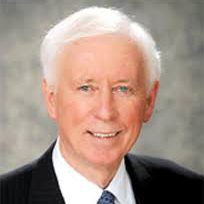Climate Change Has Health Consequences
Last month I represented the World Medical Association (WMA) at the opening ceremonies for the third annual Climate Week in New York City. This event was hosted by former Prime Minister of Great Britain Tony Blair. Prince Albert II of Monaco was honored for his involvement in efforts to mitigate climate change and adapt to its effects.
Prior to the ceremony there was a private roundtable discussion of what can be done to build support for responding to the reality of climate change. Attendees included eighteen leaders from around the world representing among others the World Bank, the United Nations, financial institutions, agriculture, veterans, energy companies, think tanks and health.
The consensus around the table was that governments must take a leadership role and that the focus of efforts will be most effective if it emphasizes the economic advantages of moving to clean technologies.
As the only health related participant my task was to highlight the fact that climate change is hazardous to our health.
And we are seeing the evidence.
Global warming produces extreme heat events that have killed tens of thousands around the world including here in the United States.
Heat waves are more frequent, more intense and of longer duration and cause illness and death from heart disease, diabetes, stroke and respiratory disease.
Extremes of weather are more frequent including storms, heavier downpours and flash flooding and are associated with water-borne disease outbreaks, when flooding overwhelms sewer systems and contaminates drinking water.
Increased temperatures and elevated carbon dioxide production from burning fossil fuels boost pollen production from ragweed.
And the pollen grains hitch rides on particulates from diesel and coal combustion, delivering those allergens deep inside our lungs.
The result, the allergy season has lengthened by two to three weeks since 1980 and asthma rates have doubled in the U.S.
Warmer weather favors disease-bearing insect migration.
For example in the past decade tick-borne Lyme disease rose ten-fold in Maine in the US, and northerly parts of the state are experiencing Lyme disease for the first time.
Warmer weather favors increases in insect populations.
And, the wake-up call this year in the US is the mosquito borne West Nile virus outbreak.
The Centers for Disease Control (CDC) reports as of September 11, a total of 2,636 cases and 118 deaths in people in 48 states.
This incidence is the highest reported since the disease was first introduced into the United States in 1999.
Of that number 1,405 or 53 percent were classified as having neuroinvasive disease such as meningitis or encephalitis.
Climate instability and changing weather patterns threaten our health and the vitality of our life-support systems.
The harm to our health and well-being, and the associated health and social costs will continue to mount unless we take comprehensive action.
Physicians have a role to play to:
Encourage advocacy for environmental protection, reduction of green house gas production and sustainable development of green adaptation practices.
Work to improve the ability of patients to adapt to climate change and catastrophic weather events.
Work with others to educate the general public about the important effects of climate change on health and the need to mitigate climate change and adapt to its effects.
Work with others, including governments, to address the gaps in research regarding climate change and health.
As individuals act to minimize their impact on the environment.
And to call all upon governments to strengthen public health systems in order to improve the capacity of communities to adapt to climate change.
All of which brings to mind an ancient Chinese proverb:
“When is the best time to plant a tree,” asks a young student, sitting in the hot sun with his teacher.
“Twenty years ago,” replies the teacher.
The young boy, feeling a drop of sweat run down his cheek asks,
“Well, then when is the second best time?”
“Now!!” intoned the teacher.
I think the teacher was right.

